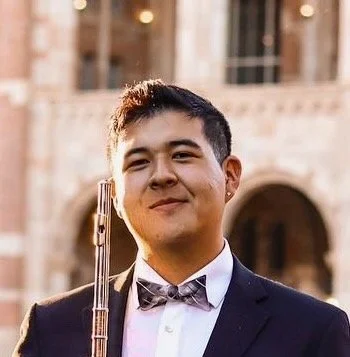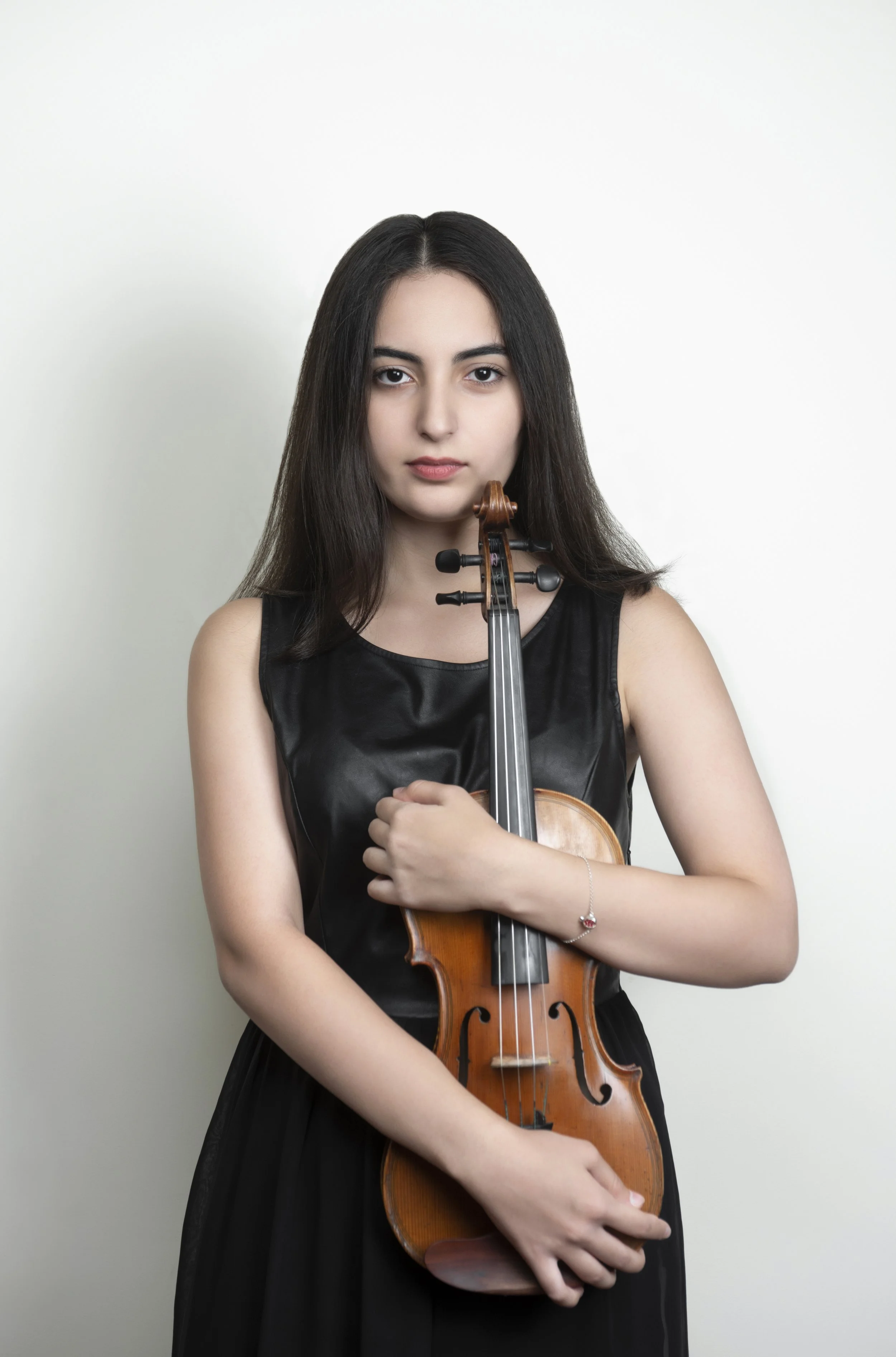we are the fma of Silicon valley
Originally founded by Silicon-Valley-native Matthew Origel and his peers Margherita Brodsky and Maria Matshkalyan from the prestigious Escuela Superior de Música, the Free Music Academy of Silicon Valley is a non-profit organization dedicated to promoting diversity, inclusion, and cultural enrichment in the world of classical music through free education.
The high cost of classical music
-
Systemic barriers in music disproportionately affect underrepresented communities, limiting access to opportunities and resources. Financial constraints are among the most significant challenges, with weekly private music lessons often costing upwards of $100 per hour in Silicon Valley, instrument rentals or purchases adding hundreds (sometimes thousands) more, and participation in youth orchestras or festivals—crucial experiments in pursuit of a thriving career in the competitive field of music—requiring fees of $1,500–$2,000 annually. These costs create substantial obstacles for low-income families.
In addition the sheer cost of music, music education programs in schools are often underfunded or nonexistent in marginalized communities, further restricting access. Social and cultural factors, such as a lack of representation in orchestras and limited exposure to diverse composers, reinforce a perception that classical music is exclusive to certain demographics. Together, these barriers perpetuate inequities, making the field less accessible to talented individuals from diverse backgrounds.
-
Classical music has long been criticized for its lack of racial diversity among performers, composers, and audiences. A study revealed that only 4.2% of musicians in major U.S. orchestras identify as Black or Latino, a stark underrepresentation compared to their presence in the general population.
Anthony McGill, Principal Clarinetist of the New York Philharmonic and one of the few Black musicians in leadership positions in classical music, has spoken about the challenges of systemic racism, stating, “Racism isn’t just in the overt things; it’s in the absence of people like me in rooms where decisions are made.” In addition to his statement, it is worth noting McGill is the only black musician in an orchestra located in a city that is almost 25% black in population.
Moreover, in addition to the composition of orchestras, repertoire programming often fails to reflect diverse cultural backgrounds. A 2023 report from the Donne Foundation highlighted that orchestras across 30 countries featured works by composers of color in only 5% of their total programming. This lack of representation limits visibility for aspiring musicians from diverse backgrounds and perpetuates a Eurocentric focus in classical music.
These statistics and lived experiences paint a clear picture of the deep racial inequities ingrained in the classical music world, demonstrating the need for a more inclusive and equitable industry.
Sources:
-
To make music accesible to any child who wants to participate, we need systemic change that goes beyond surface-level initiatives. It’s essential to create a more inclusive environment by addressing barriers that under-resourced groups face—whether through access to education, mentorship, or performance opportunities. This requires rethinking how music programs are funded and ensuring equity is woven into curriculum design. Only by fostering an environment where all musicians, regardless of background, feel welcomed and supported can we truly achieve long-term change and a more equitable music landscape.
our solution to level the playing field
-
The Free Music Academy of Silicon Valley is designed to give young musicians from disenfranchised backgrounds the chance to learn and grow without the financial barriers that often come with classical music education. We will offer free lessons to talented students, providing them with access to professional-level instruction and the opportunity to develop their skills. These lessons will be accompanied by mentorship from experienced musicians, fostering growth both in technique and artistry. Music should never be an exclusive privilege—it should be an opportunity for every child to explore and embrace.
-
One of the key components of the Free Music Academy of Silicon Valley is ensuring that financial constraints don’t prevent talented students from pursuing their musical dreams. We are teaming up with instrument manufacturers, donors, and community partners to provide free instruments to our students. This collaboration will allow us to equip each student with the tools they need to succeed—whether it’s a flute, violin, or any other instrument—so they can focus on their growth and development without worrying about the cost of acquiring or maintaining an instrument. By making instruments accessible to all, we aim to break down one of the biggest barriers to entry in music education, giving every student the chance to thrive.
-
At the Free Music Academy of Silicon Valley, we believe in the power of performance as a way to build confidence, celebrate progress, and connect with the community. Twice a year, we will host biannual recitals, giving our students the opportunity to showcase their skills and talents in front of their families, friends, and the wider community. These recitals are not only a chance for our students to shine but also an important way to foster a sense of belonging and pride. Additionally, they serve as a meaningful opportunity for our sponsors to witness firsthand the impact of their support and see the growth and potential of the students they’ve helped empower. By sharing these moments of success, we can continue to build a network of encouragement and appreciation for the arts.
-
The Free Music Academy of Silicon Valley draws inspiration from two impactful programs: El Sistema, based in Venezuela, and the Sphinx Organization, headquartered in Detroit, Michigan. Both have transformed the field of music education by addressing systemic barriers and promoting inclusivity.
El Sistema
Founded in 1975 by economist and musician José Antonio Abreu, El Sistema is a publicly funded music education program operating throughout Venezuela. Its mission is to use music as a tool for social change and to empower underserved communities. By providing free access to musical instruments, lessons, and orchestral training, El Sistema has reached over one million children, many of whom come from economically disadvantaged backgrounds. The program’s emphasis on discipline, teamwork, and artistic expression fosters both personal and community development. Globally, El Sistema has inspired similar initiatives, often referred to as "El Sistema-inspired programs," demonstrating its effectiveness as a scalable and replicable model.Sphinx Organization
Established in 1997 in Detroit, Michigan, the Sphinx Organization focuses on addressing the underrepresentation of Black and Latinx musicians in classical music. Its multifaceted approach includes mentorship programs, performance opportunities, and financial scholarships for young artists of color. The annual Sphinx Competition provides a platform for emerging musicians to showcase their talent and gain professional exposure. Additionally, the Sphinx Organization partners with orchestras and arts institutions across the United States to foster career opportunities for its participants. Through its initiatives, Sphinx has become a leader in championing diversity and inclusion in classical music, empowering underrepresented musicians to thrive both artistically and professionally.By combining the principles of El Sistema and Sphinx, the Free Music Academy of Silicon Valley aims to create a program that eliminates financial barriers, nurtures talent, and celebrates diversity. These models guide our vision of fostering an inclusive and equitable music education ecosystem for underserved communities. While our academy will be on a significantly smaller scale than that of our models, we hope to have a just as large an impact on our student’s lives and educational career.



